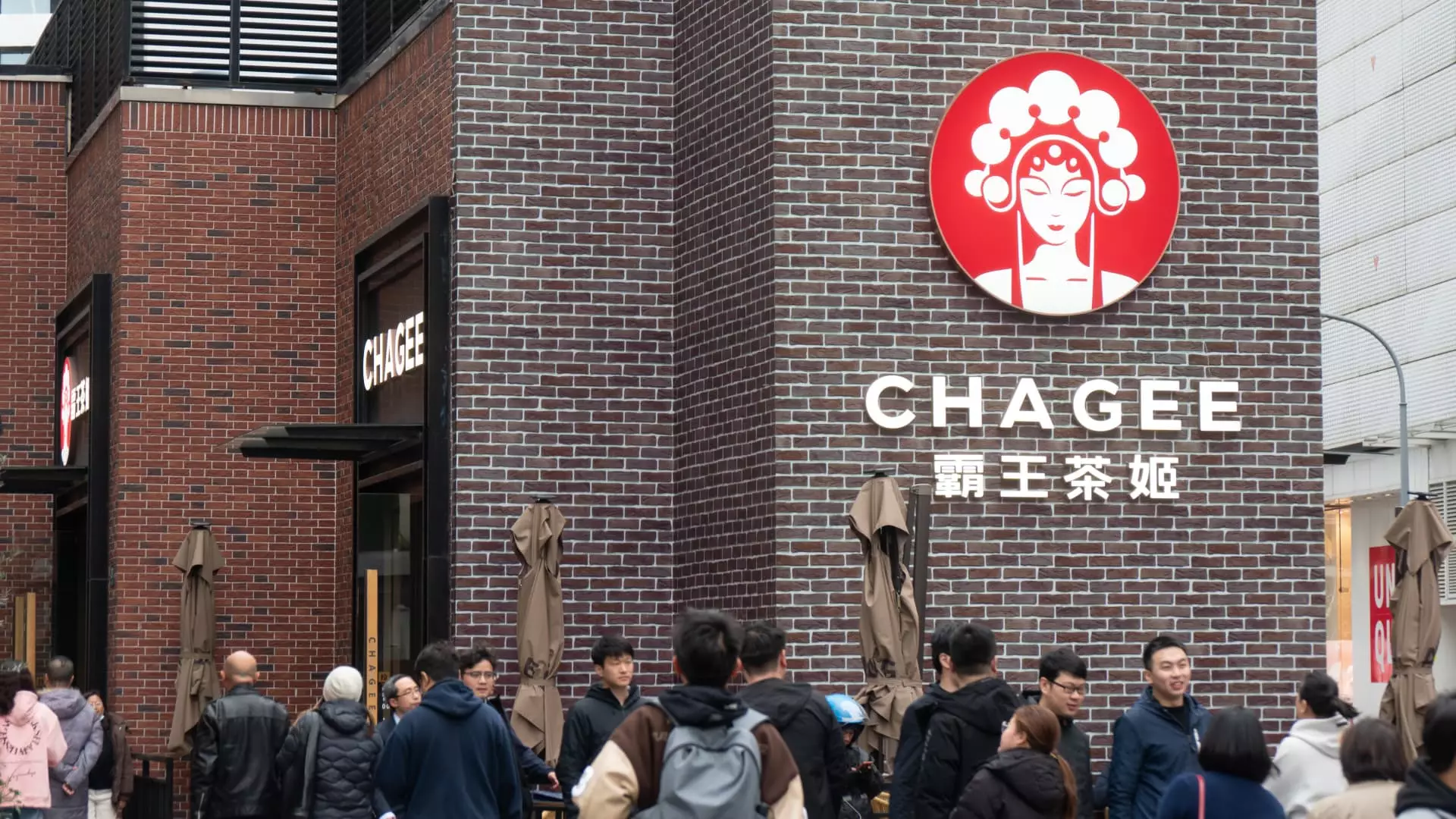The Chinese bubble tea chain Chagee’s decision to file for an initial public offering (IPO) in the U.S. is a bold one, but it comes wrapped in a series of unsettling realities. With plans to trade on Nasdaq under the ticker “CHA,” the company is not merely looking to establish itself; it’s throwing itself into a tumultuous market marked by political skepticism and investor caution. This impending launch is sure to vocate strong responses amidst an environment fraught with distrust towards Chinese businesses operating internationally.
Impressive Growth Yet Eerie Comparisons
Chagee reported an impressive growth spurt since its inception in 2017, boasting over 6,400 locations primarily across Asia. However, it’s essential to scrutinize this rapid expansion, given the context of other Chinese companies like Luckin Coffee, which dazzled investors with similar growth before imploding spectacularly in a scandal that dented confidence in Chinese brands. While Chagee’s CEO Junjie Zhang seems poised to modernize tea drinking, comparisons to Luckin underscore the risk of engaging in a bubble that could burst. Will Chagee be viewed as a shining example of innovation or as another cautionary tale?
The Road Ahead: Pyrrhic Ambitions?
Chagee has made no secret of its grand plans: to permeate 100 countries and serve 15 billion cups of tea annually. While these aspirations may dazzle the untrained eye, they also carry the whiff of overambition. In a world where geopolitical tensions are simmering, can a bubble tea chain really traverse this complex landscape while satisfying such lofty goals? Creating 300,000 jobs sounds promising, but can the infrastructure and consumer demand genuinely sustain such growth? The answer may lie in the potential backlash from American investors wary of Chinese involvement.
A Dwindling Support Network
The track record for Chinese enterprises in the U.S. has seen a marked downturn, with a 5% decrease in listings on major exchanges in the past year. Political scrutiny continues to loom large, leading companies like Shein to redirect plans for an IPO from the U.S. to London, prompting skeptics to wonder if Chagee will find itself similarly cornered. The diminishing window for Chinese firms to succeed in the U.S. market raises the stakes considerably. In the face of increased legislative pushback, investors must tread carefully.
An Undeniable Shadow Over Investments
While Chagee can certainly grasp at the stars, it must also navigate the increasingly dark clouds looming over investments in Chinese companies. Luckin Coffee’s scandal has set a poor precedent, causing investors to think twice before diving into another Chinese venture. With the backdrop of recent diplomatic tensions between the U.S. and Beijing, the question remains: will American investors embrace Chagee as a fresh wave of innovation, or will they exercise restraint, burdened by the ghosts of previous investments gone awry?
For anyone closely observing Chagee’s trajectory, it is palpable that the road ahead is riddled with both potential and peril. The challenge will not merely be to serve delicious bubble tea, but to win over a skeptical audience amidst a climate of changing perceptions and rising political tensions.

